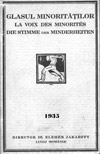
Glasul Minorităţilor. La Voix des Minorités. Die Stimme der Minderheiten. 1935-10+11
please find in the » Introduction.pdf « a complete Table of Content for all annual issues of 1935
More...We kindly inform you that, as long as the subject affiliation of our 300.000+ articles is in progress, you might get unsufficient or no results on your third level or second level search. In this case, please broaden your search criteria.

please find in the » Introduction.pdf « a complete Table of Content for all annual issues of 1935
More...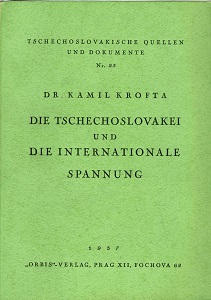
Seven months after his first Exposé delivered in 1937 to the House of Parliament and the Prague Senate, the Czech historian Kamil Krofta made this second speech on the International Situation of Czechoslovakia facing Nazi-Germany’s campaign in the Sudeten-Crisis and the forthcoming way to the Munich conference, bringing England’s and France’s appeasement policies with Hitlers stratggies. This text was delivered to the Parliament on November 11, 1937, and published by ORBIS-Publisher as issue 23 of the series “Czechoslovak Sources and Documents”
More...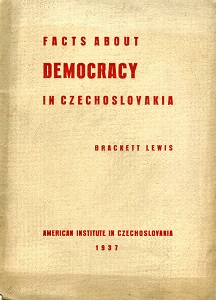
On the basis of the usual definition of democracy as “government by the people, direct or through elected representatives”, there are not many Democracies left in Europe (1938). This little book is an attempt to examine objectively the state of democracy in the Czechoslovak Republic, to learn in how far government is by the people and for the whole people. The historical foundations of its institutions would have contributed to the study, but have been omitted for the sake of brevity except where necessary to indicate advances made under the Republic. Democracy has been considered herein, moreover, not only in its political, but also in its social and economic connotations. We shall take a glimpse at the democratization of agriculture through the land reform and cooperative credit and marketing. At democracy in education, social legislation, the relations of the several nationalities inhabiting the Republic, as well as at the status of representative government. (from the author's introduction. Text has been published in 1937 by the American Institute in Czechoslovakia.
More...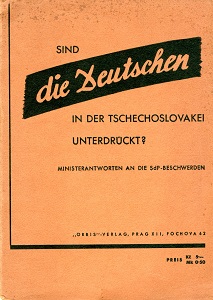
During the budget debate in the Czechoslovak Parliament, the Sudeten-German Party of Konrad Henlein brought-up numerous complaints about alleged incorrect treatment of the German minority by the Czechoslovak State. ORBIS-Publisher, with this booklet, offered in German language a collection of the answers delivered in the debates by the leading ministers oft he government.
More...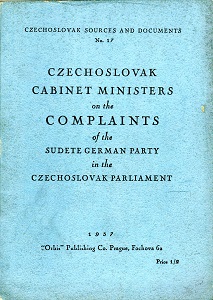
During the budget debate in the Czechoslovak Parliament, the Sudeten-German Party of Konrad Henlein brought-up numerous complaints about alleged incorrect treatment of the German minority by the Czechoslovak State. ORBIS-Publisher, with this booklet, offered in German, English and French languages a collection of the answers delivered in the debates by the leading ministers oft he government.
More...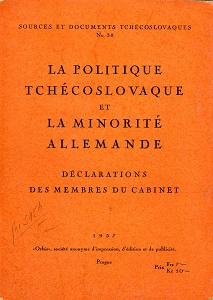
During the budget debate in the Czechoslovak Parliament, the Sudeten-German Party of Konrad Henlein brought-up numerous complaints about alleged incorrect treatment of the German minority by the Czechoslovak State. ORBIS-Publisher, with this booklet, offered in German, English and French languages a collection of the answers delivered in the debates by the leading ministers oft he government.
More...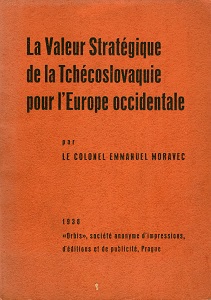
As long as Czechoslovakia exists, the Bohemia basin constitutes an advanced sentinel facing the North-West. Under its protection, the forces intended to bar the entrance to the Danubian countries head-on or to block by flanking action any maneuver to the east, across Poland, along the northern shore of the Black Sea or towards the South, across the Alps, against the Italian peninsula, can at leisure make their arrangements in the Danube region. With Czechoslovakia annihilated, the Danube region will be transformed into a base for German expansion in three directions: Italy, the Balkans, Poland and the U.S.S.R. (from the introduction)
More...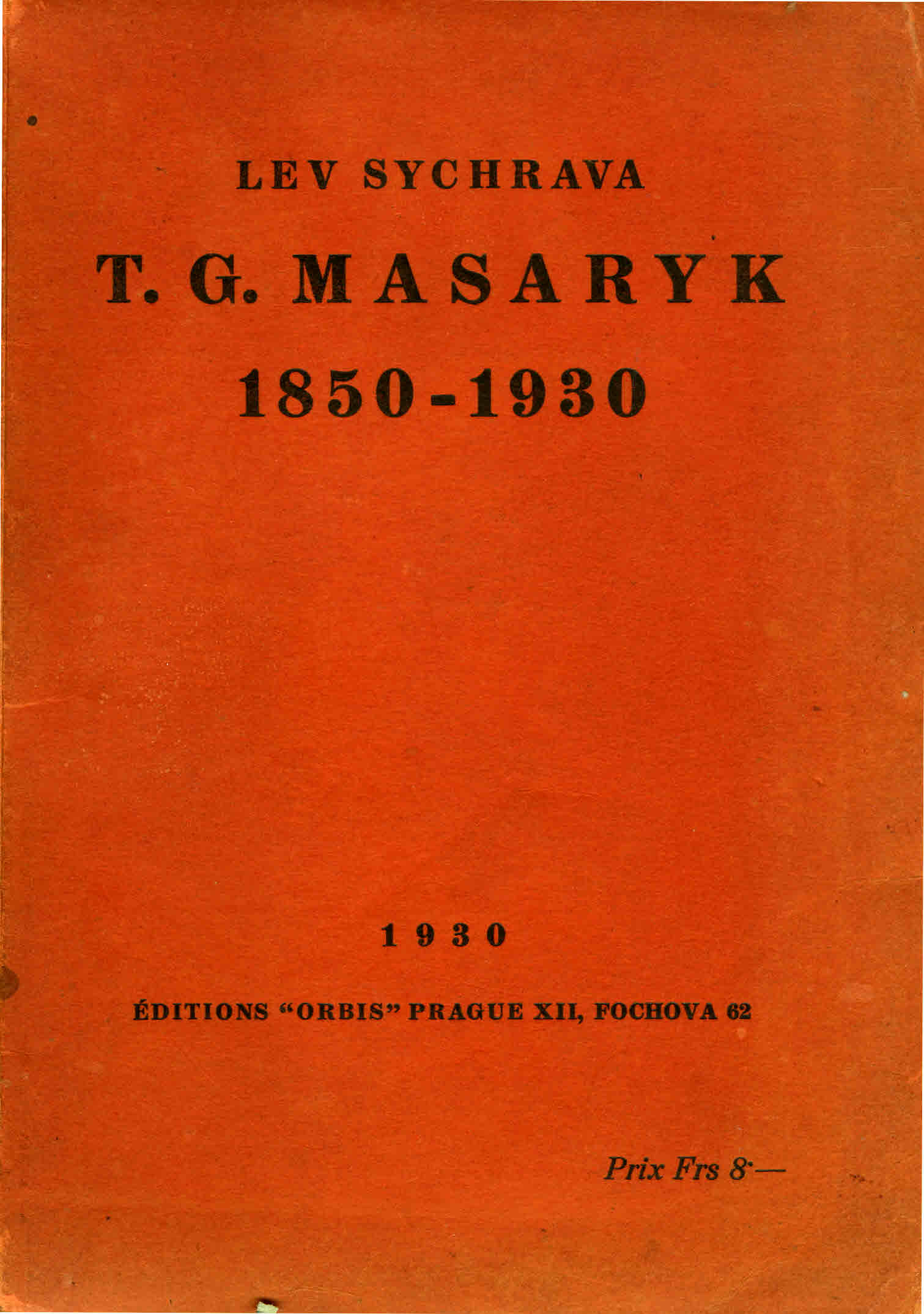
The German writer Emil Ludwig, biographer of Napoleon and Lincoln, talking in Geneva in 1927 with the English playwright Bernard Shaw about the possibility of realizing the United States of Europe, launched, during the conversation, the question of who could be the president. Shaw is told to have answered without hesitation: "I only know one, it's Masaryk". Another English writer, H.-G. Wells, called Masaryk the greatest man in Europe, placed at the most central point of the European United States.
More...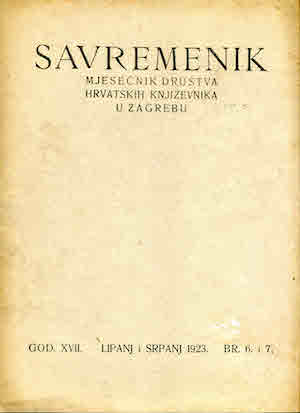
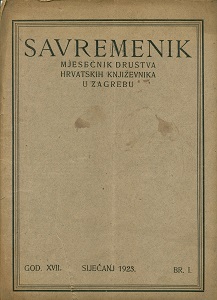
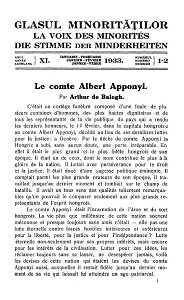
please find in the » Introduction.pdf « a detailed Table of Content for this issues
More...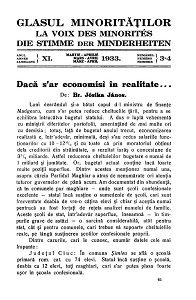
please find in the » Introduction.pdf « a detailed Table of Content for this issue
More...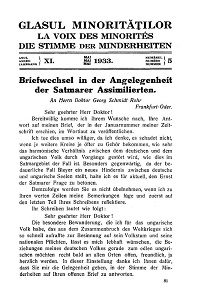
please find in the » Introduction.pdf « a detailed Table of Content for this issue
More...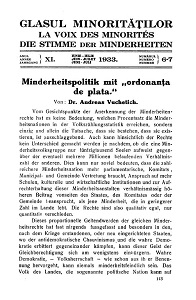
please find in the » Introduction.pdf « a detailed Table of Content for this issue
More...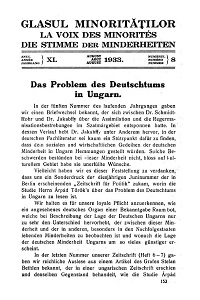
please find in the » Introduction.pdf « a detailed Table of Content for this issue
More...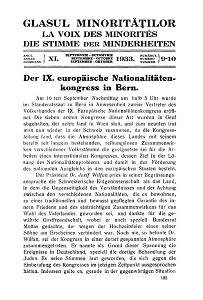
please find in the » Introduction.pdf « a detailed Table of Content for this issue
More...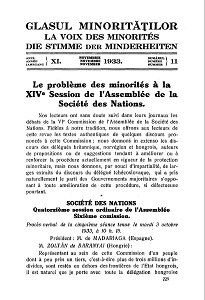
The problem of minorities at the XIVth Session of the Assembly of the League of Nations. Fourteenth Ordinary Session of the Assembly - Sixth Committee. Minutes of the fifth meeting held on Tuesday, October 3, 1933
More...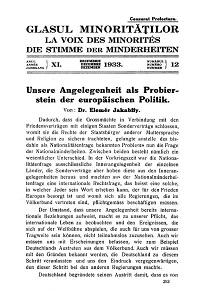
please find in the » Introduction.pdf « a detailed Table of Content for this issue
More...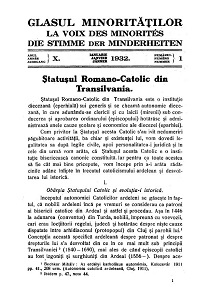
please find in the » Introduction.pdf « a detailed Table of Content for this issue
More...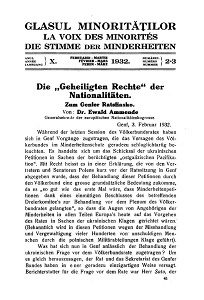
please find in the » Introduction.pdf « a detailed Table of Content for this issue
More...